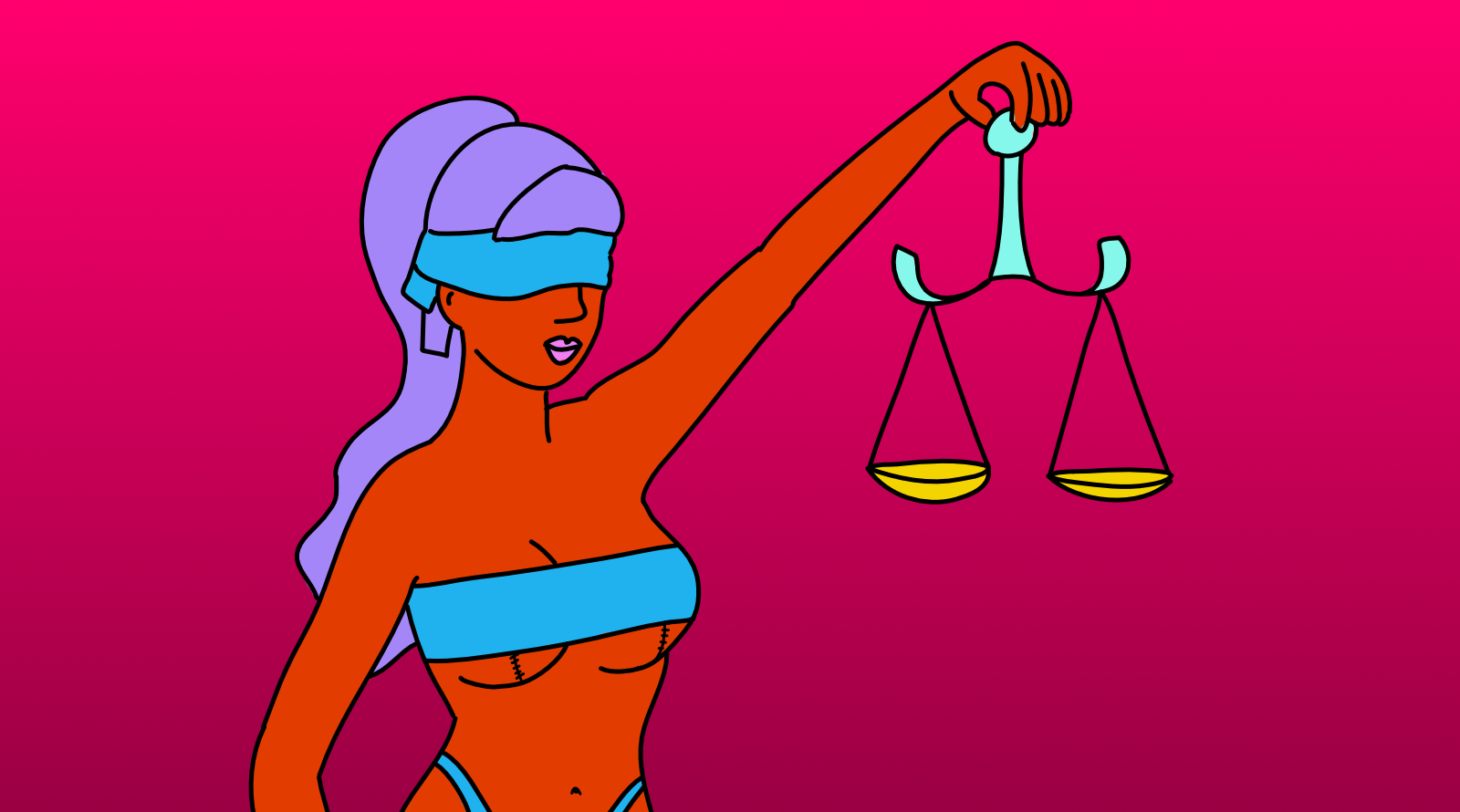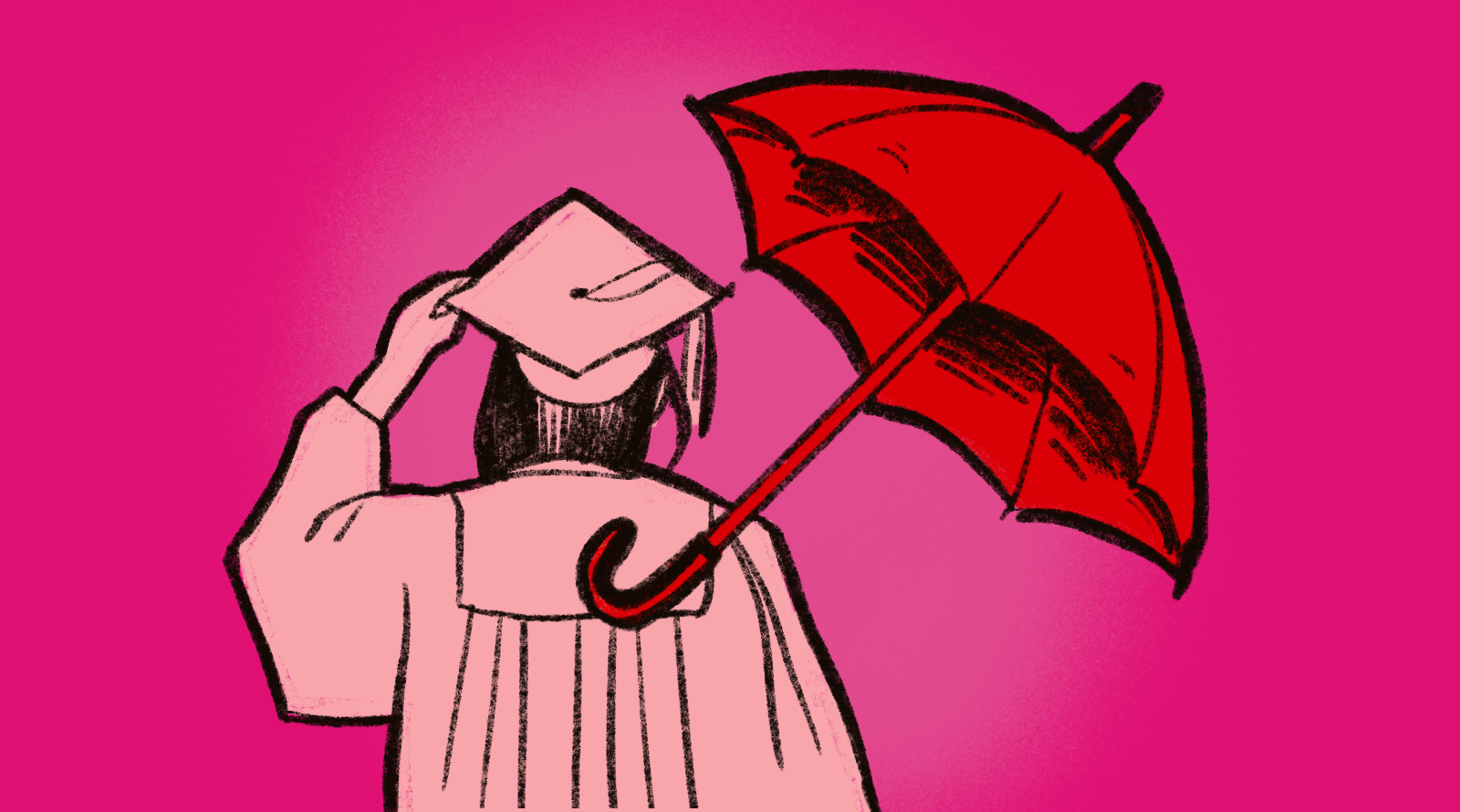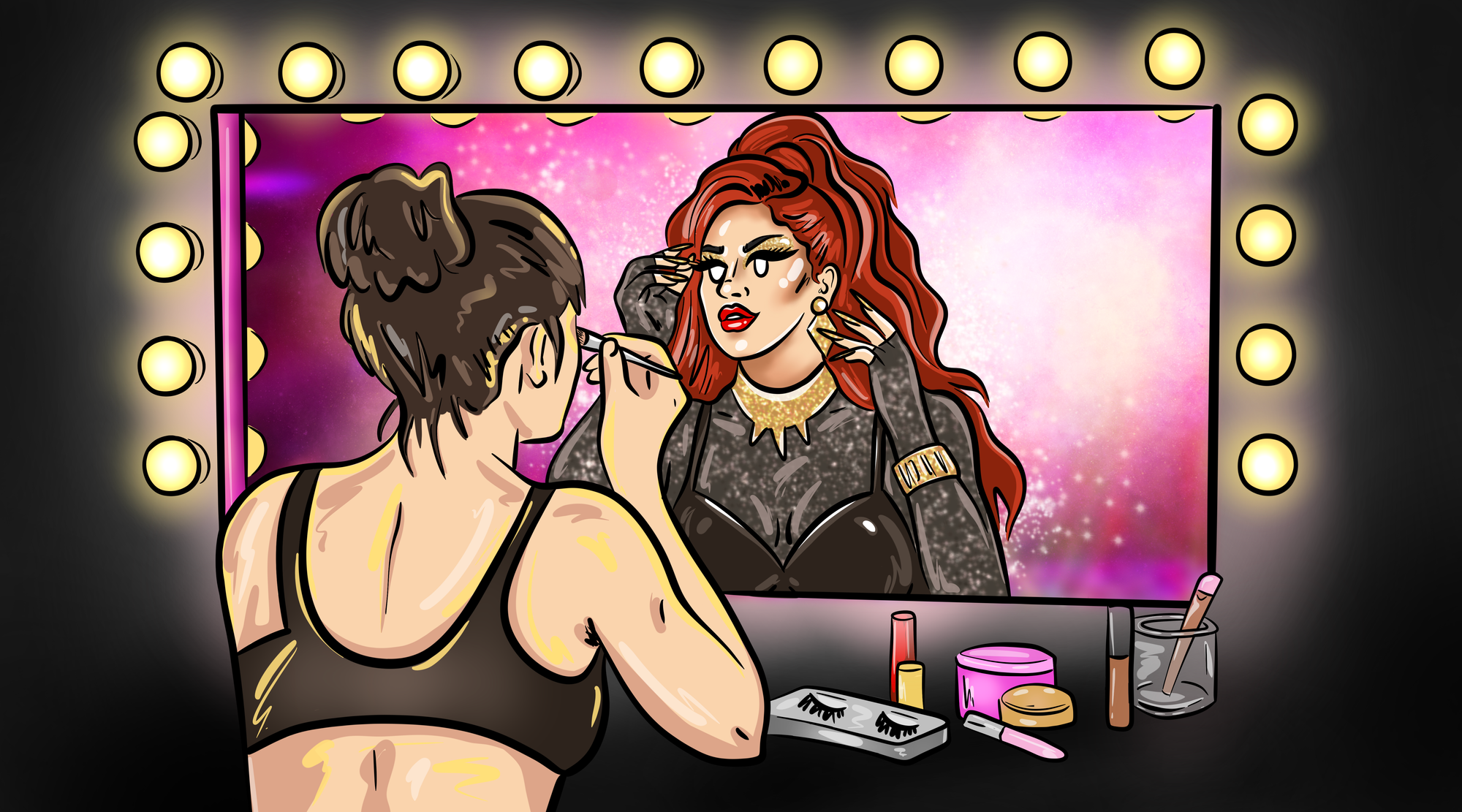Disclaimer: This is not legal advice. Please consult your local peer orgs for the full details of Victoria’s Sex Work Decriminalisation Act 2022.
Editor’s Note: this article contains descriptions of specific incidences of discrimination against sex workers, which could be distressing.
At the end of Summer in ‘22, on an otherwise banal weekday, I sat hunched over my desk at home. My eyes were fixed firmly on my PC screen, watching a livestream of the Victorian State Parliament.
It was my first time observing politicians in action, and let’s be honest, watching tiny pixelated people in suits say ‘aye’ and ‘nay’ doesn’t sound particularly riveting, does it? Though on this day, the 22nd of February, they were voting on the Sex Work Decriminalisation Act 2022, a bill that could change my life. Along with removing many of the working and advertising regulations leveraged unfairly at sex workers, it also aimed to entrench anti-discrimination provisions that would improve our workplace safety.
The moment the bill passed, a flood of congratulatory messages popped up on my social feed. It was done – we finally had decrim! But now that these changes have come into effect, what’s life like? How do I actually feel about getting decrim? I can only speak for my own experience, but so far, it’s… somewhat mixed.
What things used to be like (for me, anyway)
When I started doing sex work in Victoria more than 15 years ago, Australia was riding the tail end of the mining boom. Social media didn’t wield the power it does now – I simply clocked in to my local brothel and worked until I made the amount I wanted. Or put up an ad on one of the really badly-designed websites that were available, and scanned incoming text messages, until I’d found enough genuine clients.
I was lucky, I had options to choose from around how I worked, and could afford the advertising and equipment I needed. All the same, there were many practical frustrations to deal with. At that time in Victoria there were some weird, nonsensical laws in place: incalls were prohibited, STI tests were government mandated, and you couldn’t show anything below your shoulders in advertising photos – just to name a few!
These kinds of rules, aimed directly at controlling the way sex workers conduct their business, is what happens under the regulatory approach known as ‘licensing’, ‘legalisation’ or ‘regulation’. A licensing system creates special legal conditions that only apply to us and cause a great deal of harm. For one, these targeted rules reinforce the idea that sex work is somehow inherently dangerous or problematic, further entrenching the stigma that make our lives a misery. It also often creates a ‘two-tiered’ situation, where workers who are more able to comply with the rules are far less a target for police attention, where other more vulnerable groups – such as migrant workers and street-based sex workers – bear the brunt of overzealous policing, enforcement, shaming, stigma, and stress. All of this furthers their marginalisation and affects their wellbeing, both in the workplace, and their everyday lives.
A licensing system creates special legal conditions that only apply to us and cause a great deal of harm.
Even as a privileged worker, my experiences were demoralising. The Business Licensing Authority (BLA) was the government department tasked with enforcing all of this. And, being the logistics nerd I am, I ended up having quite a few conversations with dour-sounding government employees as I tried to figure out the boundaries of these laws. Whether I was applying for an on-premises independent brothel license, or trying to find a way to set boundaries around what I did and didn’t offer in my advertising copy, my attempts to find practical solutions were shut down. My only achievement was to provide some middle-aged government employee with a bit of entertainment, as I stammered through my questions and problems.
All the while, following the STI-screening schedule set by the government meant that the insides of my arms were always spotted with puncture wounds from blood tests. My non-industry friends and the people I dated followed less strict safer sex standards than I did at work, and got tested far less often. But I was the one that had to front up to the clinic every four weeks.
The issue felt even closer to home when I joined the owner’s corporation of my apartment building. At Christmas drinks that year, I stood around sipping wine and chatting with a bunch of sixty-something-year-old white dudes. One of them confessed that he suspected we “had a prostitute in the building”. The ensuing discussion about how to “get her out” lacked any acknowledgement of her humanity. My conviction that we should respect her right to live and work where she pleased wasn’t backed up by the law and I felt helpless.
Becoming a sex worker was the first experience I’d ever really had of being marginalised. It might sound a bit silly to people who have had to deal with marginalisation and stigma their whole lives, but you really don’t understand what other people are talking about until it happens to you. I found myself stuck in hotel rooms with demanding clients who expected services I didn’t offer. I freaked out about accidentally staying in a hotel where the reception desk was within view of the lifts, because I didn’t want to be evicted and lose all my bookings for the day. I came to understand that just being a sex worker is enough to get your car searched by the cops. There are so many ways that this otherwise interesting and engaging job can be made stressful and exhausting. If this was my experience, how much harder must life be for others who are even more visible and vulnerable?
What things are like now
You can understand why I was so excited for the decrim laws. And when they did come into effect? It felt amazing. In case you’re not across it, here’s a quick run-down on what happened:
On 22 February 2022 the Sex Work Decriminalisation Bill 2022 was passed by Victorian Parliament. The new legislation removed most offences and criminal penalties, repealed public health offences associated with sex work, repealed the Sex Work Act 1994 and directed that business regulation for sex workers be handled the same way as for other types of enterprises. The changes came into effect in two stages: Stage 1 on the 10th of May 2022, and Stage 2 on the 1st of December 2023.
I was overwhelmed with admiration for the work of our activists and advocates. Our peer orgs, such as Scarlet Alliance and Vixen Collective, were instrumental in getting this across the line, as was everyone else in the community who championed the new laws and helped get the public on our side. We spend a lot of time as sex workers feeling helpless in the face of overwhelming ridicule, and this was a win that proved how effective our organising and cooperation can be.
What’s life like now? Well, the first thing I did was jump on my socials and announce that I do, in fact, offer incalls. Even more exciting, providers in Victoria can now conduct their small business operations from home or a shopfront, as long as they comply with the same regulations as any other kind of commerce. To cap it off, the Victorian Government also introduced wording into our anti-discrimination legislation to specify that it’s unlawful to discriminate against someone due to their profession. Many of these new laws are yet to be truly tested. Banks, landlords, and other essential service providers will probably continue to discriminate, and we’ll have to fight hard to make sure people and institutions respect our rights. I’m keenly looking forward to those first few battles, to the social changes that I hope will follow as people realise they have to do better. When the law treats sex work the same as any other kind of business, I hope that the people around me will eventually come to realise that it is, indeed, just work.
Having a sex work shopfront sounds delightful, doesn’t it? Or getting involved in the first legal cases to push back against discrimination? I can’t wait. But not everyone is kicking back, excited to do battle. The truth is, these changes have failed some of the most marginalised in our community: street-based sex workers.
Street-based sex workers are often the most stigmatised folks in the sex industry. The misinformation and judgement spread by the public and media around this kind of work is a lot more intense than for more increasingly ‘socially acceptable’ forms of sex work such as online work, stripping, fetish work, and independent escorting. Street-based workers often suffer from the most police scrutiny. This stigma and persecution hits even harder because sex work already overlaps with a lot of other marginalisations, and street-based work even more so, compounding the discrimination already levied along lines of race, sexuality, gender, economic privilege, and homelessness. Street-based workers are often the most vulnerable to persecution from both the state and the public.
Our new decrim laws – which feel more like ‘decrim lite’ – don’t fully protect street-based sex workers’ rights. There are still some sex-worker-specific regulations that apply to street-based work, dictating where and when folks can find clients and conduct their business.
The truth is, these changes have failed some of the most marginalised in our community: street-based sex workers.
Let’s not forget that this is a free country, right? We should all have a right to choose where and how we work, as long as we’re not harming others. But, for some reason, the Victorian State Government decided that ignoring these rights was justified. If you look at the legislation, you’ll see that street-based sex workers are prohibited from standing near places of worship on particular days deemed important to that religion.
What are the days? Well, it depends on the site. There are potentially dozens of ‘special days’ that a street-based worker might need to remember in order to comply with the law. And who enforces this? The police, of course. Keep in mind that many places in Victoria where street-based workers traditionally gather, such as St Kilda, have a high concentration of these types of community buildings. It could be pretty easy to accidentally be a little too close - or perhaps you weren’t standing there looking for clients at all, but on your way to the corner store for a ciggie, or waiting for a friend/rideshare/bus? Any and all of these situations could give police an excuse to surveil and harass street-based workers.
That this oversight happened – the fact that street-based workers will still be kept under police scrutiny – is totally unacceptable. It’s a prime example of how, when reform happens, it’s often the most marginalised and the most vulnerable who are left behind, because they’re the easiest to ignore.
During the reform process, our national peer organisation Scarlet Alliance worked with senators Fiona Patten and Andy Meddick to try and amend the laws to ensure street-based workers weren’t left behind. Unfortunately, the amendments were rejected. After the bill was passed, they said: "Without these amendments, Victoria has not yet achieved full decriminalisation. Throughout this process, sex workers have been loud and clear that we will accept nothing less than the full decriminalisation of all forms of sex work, for every member of our community."
So, my feelings are mixed.
On the one hand, I feel like sex work in Victoria has entered a new era, where we can put aside some of our fears and just get on with doing business. A lot of the fear and anxiety will lift, and hopefully the change in laws will eventually also help shift public consciousness so that we’re less exposed to stigma and discrimination. On the other hand, I’m worried that this improved situation for some of us will mean a decrease in motivation to push and to fight for the rights of those of us who have been left behind. There’s also the risk that the public will no longer back us up when we demand these changes - that people will say, “Don’t you have enough already?”
Perhaps, now that some of that burden of the law has lifted, now that I can get down to earning a living with much less fear, that extra energy could be directed somewhere more useful? Perhaps you could do that too? Our peer organisations are still working hard to make sure everyone is included - in Victoria, you can contact Vixen Collective to see how you can get involved. Or, alternately, you may wish to touch base with Scarlet Alliance to find out what’s happening and how you can contribute.
The bottom line is that ‘decrim lite’ isn’t good enough. Until all of us have the same rights, freedoms and protections, it’s not going to stick.
Please note: Proceeds earned from writing this article were donated to Scarlet Alliance.
The information in this article/on this website is for general information only. It should not be taken as constituting professional advice from the website owner - Tryst. Tryst is not a legal adviser. You should consider seeking independent legal, financial, taxation or other advice to check how the website information relates to your unique circumstances. Tryst is not liable for any loss caused, whether due to negligence or otherwise arising from the use of, or reliance on, the information provided directly or indirectly, by use of this website or article.
Are you a sex worker with a story, opinion, news, or tips to share? We'd love to hear from you!
We started the tryst.link sex worker blog to help amplify those who aren't handed the mic and bring attention to the issues ya'll care about the most. Got a tale to tell? 👇☂️✨





